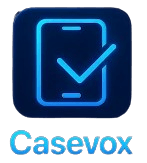🚨Are You Experiencing Mutual Recovery Collections Harassment?
Are You facing Mutual Recovery Collection Agency harassment? Under the Fair Debt Collection Practices Act (FDCPA), debt collectors are prohibited from engaging in abusive, deceptive, or unfair practices when attempting to collect debts. One specific area of concern is the use of abusive language, which includes obscene or profane terms, insults, and religious slurs, all of which are prohibited under the FDCPA. Additionally, threats related to filing and processing company actions can often cross the line into illegal behavior.
Understanding Debt Collection Agencies
Debt collection agencies are companies that specialize in recovering outstanding debts on behalf of businesses. These agencies employ strategic approaches to engage with debtors, negotiate repayment plans, and ensure regulatory compliance. By doing so, they help safeguard cash flow and protect the bottom line of businesses. Typically, debt collection agencies operate on a commission basis, earning a percentage of the amount successfully collected.
To pursue debt recovery, collection agencies may use various strategies, including sending collection letters, making phone calls, and reporting to credit bureaus. These actions are regulated by laws and regulations designed to ensure fair treatment of debtors. The Fair Debt Collection Practices Act (FDCPA) makes it illegal for debt collectors to harass, lie, or use unfair practices in attempting to collect a debt.
There are different types of collection agencies, including first-party and third-party agencies. First-party agencies are departments or subsidiaries of the original creditor or business, while third-party agencies are independent firms hired by creditors to collect debts on their behalf. Additionally, debt buyers are entities that purchase delinquent debts from creditors or other collection agencies at a discounted rate, taking on the responsibility of collecting the debt themselves.
Threats of Filing and Processing Company Actions under FDCPA
Mutual Recovery Collection Agency Debt collectors may sometimes threaten to involve “filing and processing companies” to intimidate consumers into paying debts. These threats can take various forms:
- Threatening Legal Action: Implying that a lawsuit will be filed imminently if the debt is not paid, even when there is no intention or legal basis to do so.
- Threatening Wage Garnishment or Asset Seizure: Suggesting that a processing company will be engaged to garnish wages or seize assets without due legal process.
- Threatening Criminal Charges: Indicating that failure to pay the debt could result in criminal prosecution, which is generally not applicable to civil debts.
Consumers can seek legal assistance and may recover attorney fees if the debt collector violates the FDCPA.

Mutual Recovery Collection Agency Debt Collection Harassment
Mutual Collection Agency debt collection harassment often start with a phone call, text message, fax, mail, or email claiming you owe a debt. The debt may be fake, canceled, discharged, forgiven, or beyond the period for collection. Scammers use intimidation, lies, and harassment to get you to pay. Before paying any debt, it’s crucial to confirm its validity and check for signs of a debt collection scam.
Debt collection scams can be perpetrated by individuals or companies using convincing tactics to deceive victims. Signs of a debt collection scam include unusual or threatening communication methods, demands for immediate payment, lack of documentation or proof of debt, and requests for payment via wire transfer or prepaid debit card.
Be cautious of debt collectors who use high-pressure sales tactics, threaten to sue or arrest you, or demand payment for a debt that is not yours. If you suspect a debt collection scam, do not engage with the scammer. Instead, report the scam to relevant authorities, such as the Federal Trade Commission (FTC) or your state’s attorney general’s office, to prevent similar incidents in the future.
Legal Implications of Threats by Debt Collectors
Federal law, particularly the Fair Debt Collection Practices Act (FDCPA), protects consumers from threatening actions that a debt collector cannot legally take or does not intend to take. For example, threatening to file criminal charges over a civil debt is both misleading and abusive. Similarly, implying that a processing company will take immediate action without due process is deceptive.
Protect Yourself from Mutual Recovery Agency Harassment
To protect yourself from Mutual Collection Agency debt collection harassment, it’s essential to know your rights and understand the laws that govern debt collection practices. The Fair Debt Collection Practices Act (FDCPA) prohibits debt collectors from using abusive, deceptive, or unfair practices to collect debts.
If you’re being harassed by a debt collector, you can take steps to stop Mutual Collection Agency harassment. First, verify the debt and the collector’s identity. Ask for the name of the creditor, the amount you supposedly owe, and ways to dispute the debt. Collections agencies are obligated to disclose this information.
You can also contact a consumer rights attorney to deal with debt collection. A consumer rights attorney can protect you from Mutual Recovery Collection Agency harassment and inform you about your rights. Debt collection companies may use high-pressure tactics to collect debts, but consumers have the right to dispute debts and request information from collectors.
Remember to keep detailed records of your communication with the debt collector, including dates, times, and the content of conversations. If you believe you’re being harassed, you can file a complaint with the Federal Trade Commission (FTC) or your state’s attorney general’s office.
By understanding debt collection agencies, recognizing debt collection scams, and knowing how to protect yourself from Mutual Recovery Collection Agency debt collection harassment, you can take control of your financial situation and avoid falling victim to debt collection scams.
Case Study: Bad Check Restitution Programs and Debt Collection Scams
Bad check restitution programs (BCRPs) were designed to allow individuals who wrote bad checks to avoid criminal prosecution by paying restitution and attending financial management courses. However, some private companies administering these programs have faced lawsuits for violating the FDCPA by:
- Using district attorney letterhead without authorization, misrepresenting themselves as government officials.
- Falsely threatening consumers with arrest.
- Charging unlawful fees.
Courts have ruled that such practices constitute false representations and threats of actions that cannot legally be taken, thereby violating the FDCPA.

Consumer Rights and Actions against Debt Collectors
If you believe a Mutual Collection Agency debt collector has violated the FDCPA by making unlawful threats, it is important to understand that legitimate debt collectors follow specific guidelines and do not resort to threats or abusive behaviors:
- Document All Communications: Keep records of all interactions, including dates, times, and the nature of the threats.
- Request Debt Validation: Within 30 days of the initial contact, request that the debt collector provide written verification of the debt.
- File Complaints: Report the debt collector’s behavior to the (CFPB) and the Federal Trade Commission (FTC).
- Consult an Attorney: Seek legal advice to explore potential claims against the debt collector.
Conclusion
The FDCPA provides robust protections against abusive debt collection practices, including unlawful threats related to filing and processing company actions. Consumers should be aware of their rights and take appropriate steps to address any violations, ensuring that debt collectors operate within the bounds of the law.
About Us
Consumer Rights Law Firm, PLLC is a law firm that specializes in helping clients who are facing Mutual Collection Agency debt collection harassment from debt collectors in any form, including telephone communication. Rather than suffer alone, contact our office to begin the process to stop the Mutual Recovery Collection Agency phone harassment. Our office has been assisting consumers since 2010. We have an A+ rating with the Better Business Bureau.
If you are interested in learning more about how to safeguard yourself and prevent Mutual Collection Agency harassment from Mutual. call us at (877)700-5790 for immediate assistance or visit our website.
🏆Success Stories
“I’m a senior citizen, and I was really intimidated by Mutual Recovery Collection Agency. They were using confusing legal jargon and threatening me with lawsuits. I felt completely helpless. Consumer Rights Law Firm PLLC took the time to explain everything to me in simple terms. They were patient and understanding, and they made me feel like I had someone on my side. They handled everything for me, and I didn’t have to worry about a thing. I’m so grateful for their assistance.”
“I was initially skeptical about hiring a lawyer, but I’m so glad I did. Consumer Rights Law Firm PLLC was worth every penny. They were able to get Mutual Collection Agency to back down and settle for a much lower amount than they were originally demanding. They also helped me understand my rights and how to protect myself from future harassment. Their services were invaluable.”
“I had received a letter from Mutual Collection Agency that was completely false and fabricated. I knew I needed professional help. Consumer Rights Law Firm PLLC was extremely fast to respond, and thoroughly investigated my case. They found that Mutual Collection Agency was in violation of several consumer protection laws and proceeded with a lawsuit. The outcome was far better than I expected, and I now understand the power of having a good lawyer on your side. If you are experiencing any sort of debt collection harassment, do not hesitate to contact Consumer Rights Law Firm PLLC.”
FAQs
What is considered harassment by a debt collector?
Harassment includes repeated calls intended to annoy or abuse you, threats of violence or harm, use of obscene language, calling outside legal hours, or calling you at work after you request them not to.
Can Mutual Recovery Collection Agency call me at any time?
No. Under FDCPA rules, they can only call between 8 a.m. and 9 p.m. local time unless you explicitly agree to other times.
Can Mutual Collections threaten me with arrest or jail?
No. They are not allowed to falsely threaten legal actions like arrest. Non-payment of ordinary consumer debt does not lead to jail.
Do I have to let them call my workplace?
No. If you tell them verbally or in writing that calls at your job are forbidden, they must stop calling you there.
What should I do if Mutual Recovery Collection Agency keeps calling even after I ask them to stop?
Keep a detailed log of every communication, send a written cease-and-desist notice via certified mail, and if calls continue, file a complaint with the FTC, CFPB, or your state attorney general.
Are they allowed to share my debt publicly or post it online?
No. They cannot publicly shame you or post your debt information. They also can’t contact anyone other than you, your spouse, or your attorney (except to locate you).
Can I sue Mutual Recovery Collection Agency for harassment?
Yes. Under the FDCPA, you can sue for statutory damages up to $1,000 plus any actual harm and attorney’s fees if they violate the law.
Can they call me more than 7 times in a week?
No. FDCPA prohibits calls more than seven times within seven days or in close succession intended to harass.
What must they tell me in their first contact?
They must clearly say they’re a debt collector, provide the debt amount, original creditor, and inform you about your right to dispute the debt within 30 days.
What counts as a deceptive or false statement by a collector?
False or deceptive conduct includes misrepresenting themselves as attorneys or government agents, overstating the debt, threatening actions they can’t take, or misleading you about your rights.







